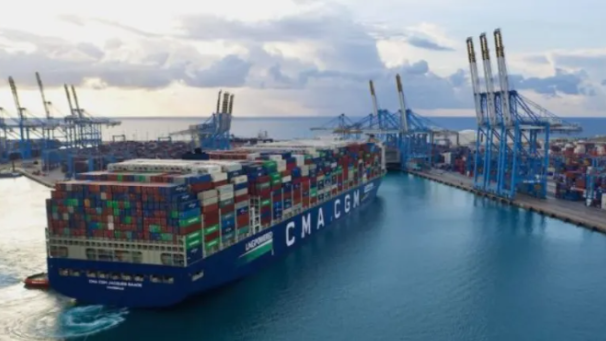The Maersk family is making another strategic play—this time targeting Svitzer Group A/S.
Just a year after its listing on Nasdaq Copenhagen, APMH Invest A/S, the investment arm of the Maersk family, has launched an all-cash takeover bid to reacquire Svitzer at a valuation of approximately 9 billion Danish kroner ($1.3 billion). The offer represents a 32% premium over Tuesday’s closing price, sending Svitzer’s shares soaring to near the bid level upon announcement.
A Cooling IPO Market: Is Privatization the Better Path?
Svitzer, once part of A.P. Moller-Maersk A/S, has operated within the Maersk ecosystem for over 40 years since the group became its majority shareholder in 1979. However, its market performance since last year’s spin-off and IPO has been underwhelming, with shares down 8% from their debut price.
APMH Invest stated that Svitzer’s public listing failed to garner the expected market attention, and privatization would better support its long-term growth. This view was endorsed by Svitzer’s board, with Chairman Morten Engelstoft emphasizing that independent valuation experts had been engaged to ensure fair treatment for all shareholders.
The Maersk Family’s Long-Game Strategy
Notably, APMH Invest has a clear long-term investment stance. The firm has no plans to sell or divest Svitzer shares, positioning itself instead as a stable financial backer.
This move reflects the Maersk family’s broader capital strategy. APMH Invest is controlled by A.P. Moller Holding A/S, the largest shareholder of Maersk—the world’s second-largest shipping company—and also holds a 21% stake in Danske Bank, with total assets exceeding 800 billion kroner. The Svitzer buyback signals the family’s intent to tighten its grip on maritime services through strategic capital deployment.
Market Skepticism vs. Industry Trends
Despite Svitzer’s leading position in global towage services, its post-IPO market reception has been lukewarm—a sign that investors may favor integrated logistics giants over niche players in the volatile shipping sector.
Against a backdrop of slowing global growth and fluctuating shipping demand, Svitzer’s performance may have struggled to impress public markets. Privatization could free the company from short-term stock market pressures, allowing it to focus on long-term strategic growth.
This $1.3 billion deal not only corrects Svitzer’s public market experiment but also realigns the Maersk family’s industrial portfolio. As global supply chains continue to evolve, the move could foreshadow broader shifts in the maritime services landscape.

Last
CMA CGM Partners with Mistral AI in 100M Deal to Drive AI Transformation Across Shipping, Logistics & Media
French shipping giant CMA CGM has entered a five-year, €100 million ($110 million) partnership with homegrown tech firm Mistral AI

Next
Ezhou Huahu Airport: Asia's Premier Cargo Hub Handles 38.71 Million Tons of Freight in Two Years
Since launching international cargo routes in April 2023, Ezhou Huahu International Airport—Asia's first professional cargo hub lo




